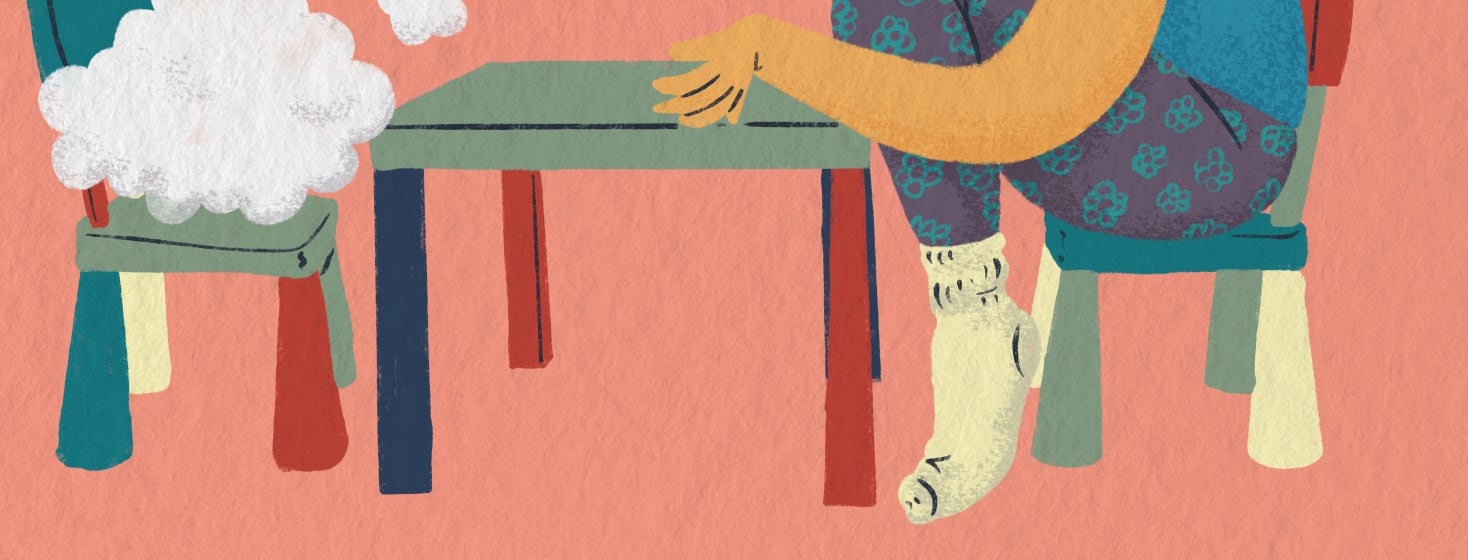Explaining RA Symptoms to My Toddler
I was diagnosed with rheumatoid arthritis (RA) at the age of 30 - although I struggled with joint pains since childhood - indicating that my battle with this autoimmune disease likely began much before I ever thought it did.
My joint damage and progression of disease are fairly well managed by my regular infusion medication.
However, there are definitely days and weeks and even seasons where breakthrough pain and RA symptoms significantly impact my daily life.
What does this look like?
Symptoms still impact my daily life
For the last many years, I've managed my RA (and my Crohn's disease) with Remicade, a biologic medication for autoimmune diseases.
I receive the medication via IV every 5 weeks and, in general, feel pretty well because of it. My visits and messages to my rheumatologist have decreased over the last few years.
The amount of activity I'm able to do regularly has also increased since finding stability on the medication.
For these things, I'm overly grateful.
Specific triggers
However, I still experience joint pain, swelling, and weakness due to RA.
Sometimes this is brought on by a specific trigger - a change in the weather, sitting cross-legged on the floor for too long, walking too far, or holding something too heavy.
But other times, it's less attributed to one thing and more of a general response to living in a body that often attacks itself without reason.
My observant and empathetic daughter
My biggest challenge these days?
Currently, I have a two-and-a-half-year-old daughter. She is extremely active, frustratingly empathetic, and an absolute sponge when it comes to absorbing new information given to her at any time.
I've noticed that when I'm moving slower or with a noticeable gait, she is fiercely in tune with my discomfort.
Recently, I was sitting on the couch icing my knees and my daughter came to sit next to me. She pointed to the ice packs and asked, "Does Mama have an ouchie?"
This was the first time I'd been confronted with needing to put my lifelong struggles with RA into terms that are appropriate and understandable to a toddler.
What came next?
How I explained my RA symptoms to my toddler
I began by explaining to her that, sometimes, our bodies aren't as strong as we want them to be.
I made sure to share that this wasn't my fault or anything I'd done wrong. Rather, it was just the way my body is meant to be.
Then, I shared that sometimes, our bodies use ouchies (or pain) to signal that something is wrong, that we need to slow down and rest, that we need to take medicine or see the doctor.
Providing language to better express pain
For me, my knees have always been a source of ouch, even since I was around her age. This is something that has me watching her behavior acutely.
It's one thing for her to want ice packs to match me while we sit on the couch.
But, it's another when she wakes up crying during the night and I can't figure out what's wrong. I wonder if her knees or other joints hurt, and I worry that I haven't taught her enough language yet to express that.
Working on communication
In our house, we work on communication a lot. It's been important to me that my daughter learns when something hurts, it's not her fault or something she did wrong, and that it's something she needs to tell us so we can help her to feel better.
If you're a parent with RA, have you had to explain your disease or the symptom effects on your life to young kids?
Have you worried more than average about your child exhibiting symptoms of RA? Please know you're not alone.

Join the conversation